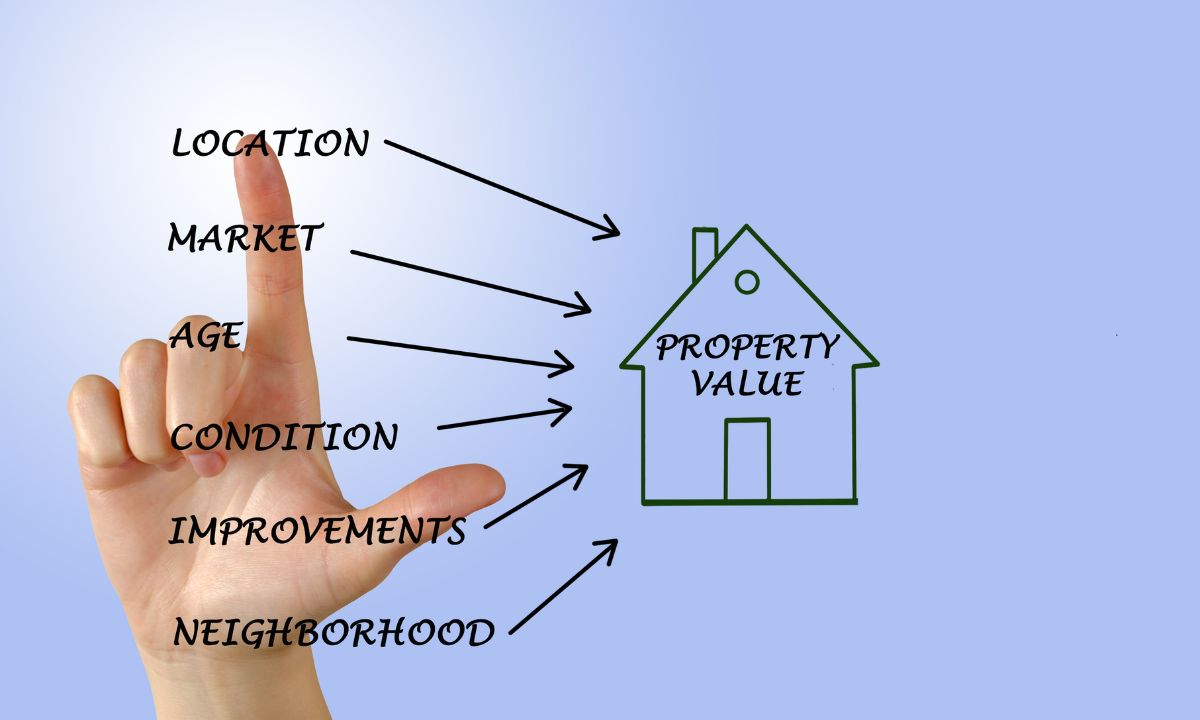 As a homeowner or potential buyer, understanding what truly influences a property’s value can help you make informed decisions. Whether you’re selling your home or planning to purchase, knowing the factors that impact property value can put you in a stronger negotiating position and help you maximize your investment.
As a homeowner or potential buyer, understanding what truly influences a property’s value can help you make informed decisions. Whether you’re selling your home or planning to purchase, knowing the factors that impact property value can put you in a stronger negotiating position and help you maximize your investment.
Here are the top six factors that play a key role in determining a home’s value:
1. Location, Location, Location
The adage still holds true—location is king. The desirability and convenience of your home’s surroundings significantly affect its value. Proximity to good schools, shopping centers, parks, public transportation, and low-crime areas typically increase a home’s worth. For buyers, this means a prime location can lead to increased appreciation over time; for sellers, it can justify a higher asking price.
2. Square Footage and Usable Space
Size matters, but usable space matters more. Buyers consider the square footage of a home, but they’re even more concerned with the layout and utility of that space. For example, a 2,500-square-foot home with more open, functional spaces is often valued higher than a similar-sized home with poor room layouts. Ensuring every square foot serves a purpose makes your home more marketable.
3. Age and Condition of the Home
A home’s age and condition play a huge role in determining its market value. Modern systems, like HVAC, plumbing, and electrical, improve home efficiency and can reduce maintenance costs for buyers. Meanwhile, well-maintained older homes that retain character can be highly desirable too. Sellers, keep your property updated and repaired; it can boost your home’s worth while reducing buyer concerns.
4. Comparable Properties (Comps) in the Neighborhood
Real estate professionals and appraisers rely heavily on comps—recent sales of similar properties in your area—to determine your home’s market value. Comps reflect local market trends and establish a benchmark for pricing your home. Buyers, understanding comps will help you gauge the true worth of a home before making an offer. Sellers, take note of these metrics to competitively price your property.
5. Upgrades and Improvements
Not all home improvements guarantee a high return on investment, but many can positively impact your home’s value. Key renovations such as modern kitchens, updated bathrooms, and energy-efficient windows or solar panels often appeal to buyers. High-quality finishes can also influence a buyer’s perception of your home’s worth. Sellers should be strategic about upgrades, while buyers can identify which features might add future value.
6. Market Conditions
The broader real estate market can greatly affect your home’s value. Interest rates, supply and demand dynamics, and economic conditions all play a part. A seller’s market with low inventory typically drives up prices, while a buyer’s market with high inventory may lead to more competitive pricing. Paying attention to market trends allows both buyers and sellers to better strategize.
Real estate transactions involve many moving parts, but being knowledgeable about what drives a home’s value can empower you to make sound decisions. Location, size, condition, comps, upgrades, and market conditions all contribute to how a home is perceived in the market.
 As a first-time homebuyer, one of the biggest decisions you’ll face is whether to buy a cozy condo or invest in a larger home. Both options have their perks, and while condos may initially seem more affordable and convenient, opting for a larger home can offer significant long-term advantages that make it a better investment. Here’s why splurging on a larger home might be the right move for your future.
As a first-time homebuyer, one of the biggest decisions you’ll face is whether to buy a cozy condo or invest in a larger home. Both options have their perks, and while condos may initially seem more affordable and convenient, opting for a larger home can offer significant long-term advantages that make it a better investment. Here’s why splurging on a larger home might be the right move for your future. When it comes to buying a home, one of the biggest decisions is whether to save up for a 20% down payment or opt for mortgage insurance. While a 20% down payment has traditionally been the gold standard, mortgage insurance is becoming an increasingly viable option for many buyers. Here’s a closer look at both paths to help you determine which is right for you.
When it comes to buying a home, one of the biggest decisions is whether to save up for a 20% down payment or opt for mortgage insurance. While a 20% down payment has traditionally been the gold standard, mortgage insurance is becoming an increasingly viable option for many buyers. Here’s a closer look at both paths to help you determine which is right for you.
 The journey to homeownership is an exciting adventure filled with many steps and decisions. As you approach the final stage of finalizing your purchase, it’s crucial to be well-informed and prepared.
The journey to homeownership is an exciting adventure filled with many steps and decisions. As you approach the final stage of finalizing your purchase, it’s crucial to be well-informed and prepared. If you’re considering buying a home or refinancing your mortgage, you’ve probably come across the term “mortgage origination fee.” But what exactly is it? Let’s take a look at the details to help you understand what this fee entails and why it’s an important part of the mortgage process.
If you’re considering buying a home or refinancing your mortgage, you’ve probably come across the term “mortgage origination fee.” But what exactly is it? Let’s take a look at the details to help you understand what this fee entails and why it’s an important part of the mortgage process.